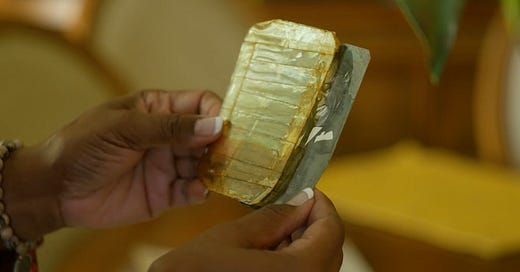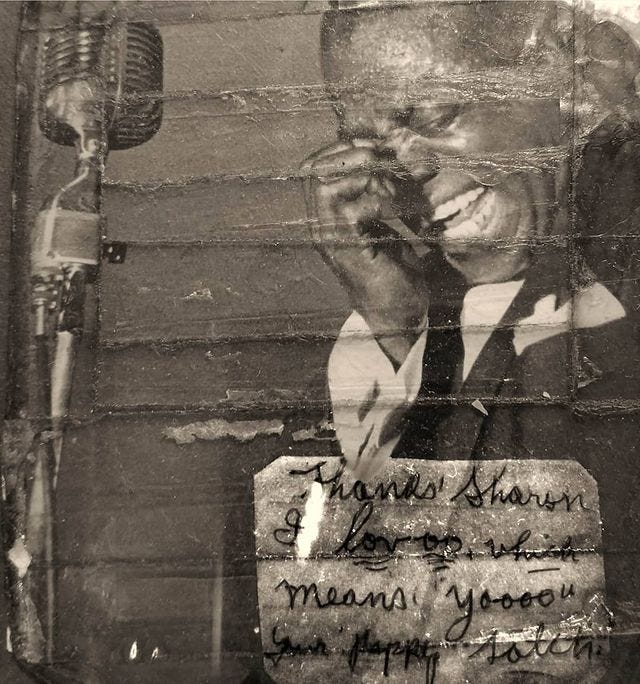
Dear Moviegoers,
When a person is referred to as being someone with “complexities,” rest assured that, nine times out of ten, this is a soft excuse for poor behavior. An attempt to rewrite some wrongs. But what happens when the writing-over of the wrongs coincides with the acts themselves in real-time, and whose narrative does this become?
In the documentary Little Satchmo, Sharon Preston-Folta takes the legend of Louis Armstrong and folds herself into it with stoicism and assertiveness. Not beneath it or around it, but into it. She is the only child of the jazz player and a living secret that had been kept from the public since her birth in the 1950s. Here, Sharon provides a trove of special details, from personal observances and experiences to letters and pictures, that makes for a film with a dueling duo of lead characters - herself and her father’s supposedly wholesome legacy. A feat of layered insight and strength that takes a sadly shadowed scenario and projects much-needed light onto it, this is.
The story is completely from Sharon’s perspective (some brief alternate narration does occur), never one to waver or weave with anyone else. After all, this is her story now, shared only with an archive of second-life items from a charismatic musical genius. Items and objects. While she never states it in Little Satchmo, it’s visually suggested that Armstrong treated his affair with the arm’s length approach of someone with a precious collection in their possession, to be handled delicately and as he and only he wished. Sharon acknowledges the lack of a true dad in her childhood but does come to the conclusion that, in the end, she and her mother Lucille “Sweets” Preston had a place in his heart. A place on a shelf? This is a question without a definitive answer and is thankfully only broached here and there in the film, as it clearly was over the years for Sharon too.
It’s a documentary of many repetitions, but never a dull moment is had. Told with poetry and poignancy from both subject and camera, Little Satchmo stakes out the claim for a filmmaking style that cuts deep without crossing lines and challenges with modest placement of shots over anything emotionally exploitative. While the filmmakers could’ve easily just had Sharon in a talking head position, they instead present a movie made up mostly of private pictures and letters and presents, sometimes placed very particularly throughout her home, with either her or her father’s voice-over hitting simultaneously. This staging highlights the truth behind the myth, the power of memories, the desperation of control, and the proud righteousness in announcing yourself to the world. I wonder how such dynamism will be achieved in future films, with social media and emails being more and more prevalent. With image filters?
Little Satchmo is awfully candid and clearly splendid. Other critics might see the lack of other interviewees as an issue, but not I. To focus entirely on Sharon was key to being such an animated but intimate movie. Without that, it could’ve been too familiar. It’s a foreign feeling to see the pedestaled as being just people with problems, but it’s true. A wonderful world this is, but it’s not without some “complexities.” Not taking a photo with your only child? Not as complex of an act, really. 5/5
Little Satchmo is currently making a theatrical run and will be in Season 7 of Reel South on PBS. Support the movie by visiting its page on the Southern Documentary Fund website.
Sincerely Yours in Moviegoing,
And now for something a bit different:








